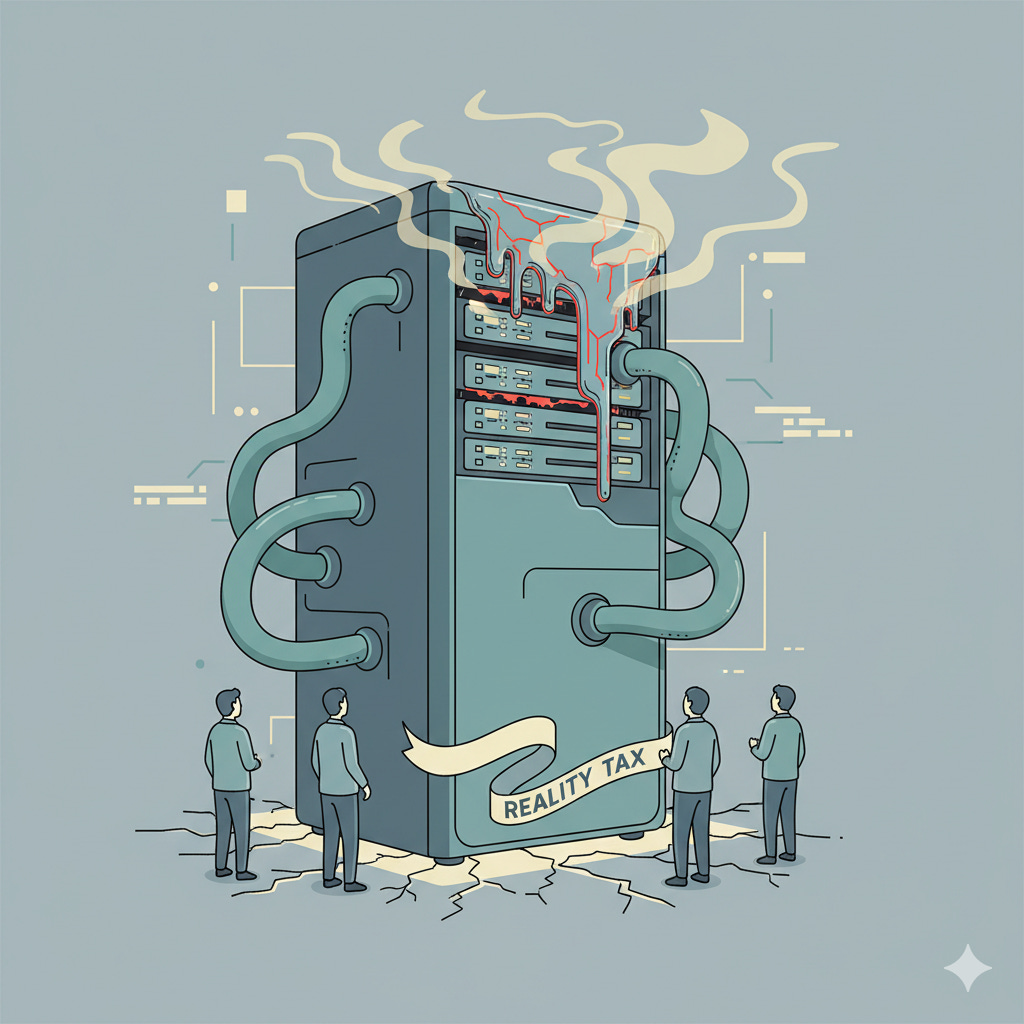The bill for AI’s promises just arrived, and nobody budgeted for this. Seven gigawatts to power chatbots, $1.5 billion for borrowed books, and your entry-level workforce declared obsolete. Meanwhile, our “revolutionary” robots still can’t master basic motor skills. Welcome to the era where AI’s true costs make the hype look like false advertising.
PAYING FOR POWER
AI Demands Its Own Power Grid as OpenAI, Oracle, and SoftBank commit $400 billion to build five data centers requiring 7 gigawatts — enough electricity to power small countries. Microsoft Reinvents Chip Cooling with microfluidic systems that pump liquid through processors, cutting heat by 65% because AI literally runs too hot to handle.
THE HUMAN COST ARRIVES
Entry-Level Jobs Vanish Overnight as AI models outperform 50-70% of junior staff, forcing companies to abandon hiring programs and scramble for retraining budgets. Authors Finally Get Paid when Anthropic settles for $1.5 billion, offering creators $3,000 per book used in training — the first real price tag on AI’s knowledge theft.
REALITY CHECKS BOUNCE
Robot Dreams Meet Physics as leading roboticist Rodney Brooks calls humanoid robot hype “pure fantasy thinking,” especially the idea of teaching dexterity through videos.
Curious what it all adds up to? Let’s break it down. Keep reading below.
Tell Me More
The Seven Gigawatt Hangover. OpenAI’s infrastructure demands reveal AI’s dirty secret: intelligence runs on raw power, lots of it. Seven gigawatts equals multiple coal plants running 24/7 so you can argue with chatbots. This massive energy appetite transforms AI from software problem to infrastructure crisis. Every query burns coal somewhere. The environmental cost of “thinking machines” makes crypto mining look sustainable. Expect brownouts in tech hubs as data centers compete with cities for electricity.
Liquid-Cooled Desperation. Microsoft pumping coolant through chips shows how desperate the situation has become. When your processors run so hot they need internal plumbing, maybe reconsider the business model. This innovation solves a problem that shouldn’t exist: computers too powerful to compute without melting. The real breakthrough would be AI that doesn’t require its own weather system. But efficiency doesn’t generate stock prices like raw power does.
The Internship Extinction Event. AI replacing junior workers breaks the fundamental career ladder. No entry-level means no senior-level in ten years. Companies celebrating automation savings today will discover they’ve automated away their future talent pipeline. The “AI whisperer” jobs they’re creating require experience nobody can get anymore. We’re building a workforce where everyone needs ten years experience for their first job. The real tax: an entire generation locked out of careers.
Knowledge Has a Price Tag. Anthropic’s $1.5 billion settlement puts a number on theft: $3,000 per book. Every AI company just recalculated their business model. Free training data officially ended. The knowledge economy suddenly has actual economics. Small consolation for authors whose life’s work became debugging data, but at least theft now has a receipt. Expect every publisher, artist, and blogger to send invoices retroactively.
Robots Still Can’t Robot. Rodney Brooks calling BS on humanoid hype delivers overdue reality. Teaching robots through videos works as well as teaching driving through movies — it doesn’t. Physical intelligence remains stubbornly physical. No amount of compute solves gravity, friction, or why shoelaces are hard. Meta betting billions on humanoids while they can’t master doorknobs shows Silicon Valley’s enduring relationship with physics: denial.
Below The Fold
AI apocalypse economics: Cory Doctorow warns AI’s trajectory leads to wealth concentration and societal collapse. Pluralistic.net
Charlie Kirk doxxing app accidentally doxxes its own users, proving karma has a sense of humor. Wired
What if the Post Office owned AI models? Public institutions could ensure tech serves common good. Max Read
Meta launches “Vibes,” a feed of pure AI-generated videos, because human creativity was apparently too authentic. TechCrunch
Study finds people accidentally falling in love with chatbots, adding “emotional dependency” to AI’s hidden costs. MIT Technology Review
19-year-old at DOGE allegedly uploaded entire Social Security database to unmonitored cloud. Oops. Ars Technica
Essay explores how LLMs are making human language repetitive and lifeless. We’re all sounding like chatbots now. Hedgehog Review
Developer makes case for PostgreSQL as cache, because sometimes the boring solution is best. Dizzy.zone
X-rays reveal terrifying defects in cheap lithium batteries. Your discount power bank might be a bomb. The Verge
Fisker EV owners self-organize repairs after company collapse, proving community beats corporations. The Verge
Looking Ahead: The reality tax keeps compounding. Next week’s bill will include more gigawatts, more lawsuits, and more evidence that robots still can’t fold laundry. The future costs more than advertised.
Thanks for reading Briefs — your weekly recap of the signals I couldn't ignore. This week that meant reading 902 stories from 47 sources. You're welcome.



Great post!